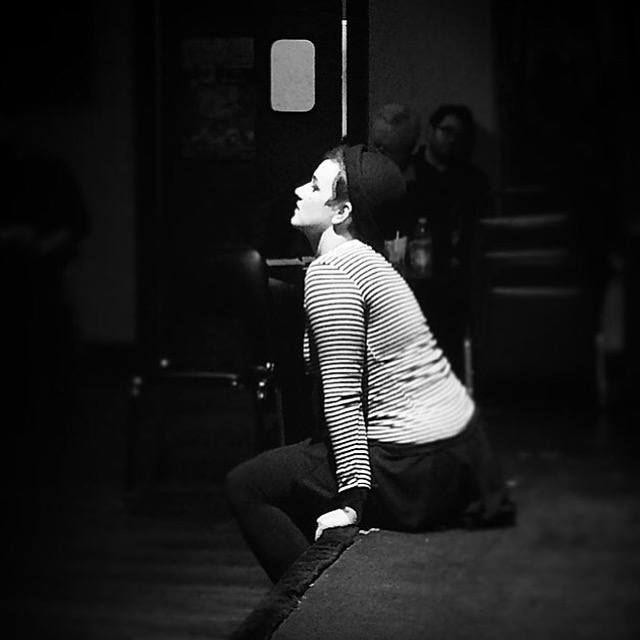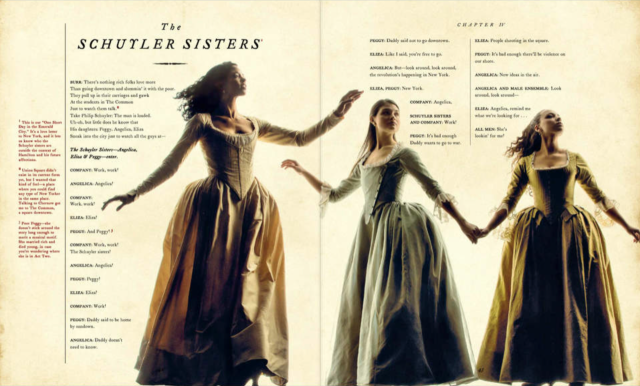Marissa Skudlarek gives us one more look at the Glamorous Life!
Nearly seven years ago, on Martin Luther King Day of 2010, I attended a staged reading of Euripides’ Cyclops in a crowded bar on the shady side of Nob Hill, and my life was changed.
I was very young then – young enough that life-changing events could still happen to me. I was a late-blooming 22, a virgin who had never gotten drunk to the point of vomiting. Nor had I ever had one of my plays produced in San Francisco, or acted in a show here, or translated a play from French, or been invited to write regularly for a website, or, or, or… I was shy and nervous, masking my insecurity with arrogance and bravado. I think, sometimes, that I must have been completely insufferable.
But Theater Pub welcomed me in, and, indeed, helped me grow up. Within two months of Theater Pub’s founding, I had drunk too many glasses of Spanish red at the Café Royale, and then thrown them up into my bathroom toilet. Within four months, I had lost my virginity. Within eight, I had had a play produced in the inaugural edition of the Pint-Sized Plays – the first time anyone in San Francisco wanted to produce my work. And then came acting, and producing, and translating from French, and meeting the woman who would direct a full-length play of mine, and writing this column for over four years, and, and, and…
I have always thought of myself as kind of a loner, a skeptical soul with an aloofness at her core. I don’t have a group of “besties” with whom I text incessantly; I know what Groucho Marx meant when he said he wouldn’t be part of any club that would have him as a member. But it is inaccurate to think of myself as such a lone wolf – I am not always so isolated. Under the right circumstances, I can be fanatically, doggedly loyal.
And Theater Pub caught me at just the right moment to provoke my lifelong loyalty. When it started, I had been in San Francisco for 18 months, struggling to make connections in the theater scene, and finding it a lonelier and more difficult endeavor than I’d anticipated. I liked Theater Pub’s goals and gestalt, but I also calculated that this organization was my opportunity to get in on the ground floor of something. In those days, it saddened me when Stuart and the other Theater Pub founders would say “Theater Pub was designed to be everybody’s side project and nobody’s band.” I didn’t have any other projects, you see, and I was desperate for a band of my own.
So – partly for lack of anything better to do, partly for careerist ambitions, but, more and more, for love – I started attending virtually every Theater Pub show. I brought innumerable people to the Pub as they passed through my life, failed dates and former co-workers and out-of-town guests. I experimented with my art, in a way that you can only do when you’re making theater in a bar and no one is getting paid more than $20. I sang rock songs, I wore reindeer antlers, I wrote silly poems and fake commercials. Eventually I became one of the “old guard,” sitting at a corner table and looking sidelong at the new wave of bright-eyed early-twentysomethings joining the organization.
So I saw how Theater Pub grew, and changed, and started a blog, and provoked controversy, and went on hiatus, and rebirthed itself. (We in San Francisco know that no startup can be considered successful until it releases Version 2.0, after all.) Alliances and relationships formed and shifted and disbanded. Though, at this time, let me give due credit to Stuart Bousel, at the helm of this for all seven years, and his partner, Cody Rishell, who diligently created promotional art for every Theater Pub show.
And now? I’ve written before that Theater Pub’s end is not to be seen as heartbreak or defeat. In 2017, there will certainly be moments when we think of Theater Pub with fond regret. But none of us are crying tears of remorse, or wailing “If only we’d fought harder, if only we could have saved it!” We’re all ready to let it go – if you were at our show on Monday, you heard the glee with which Stuart announced “Just 17 songs to go, and then I am no longer the Executive Director of this thing!” We’ve got the seven-year itch. All the cells in our body have renewed themselves, and so has the majority of Theater Pub’s artistic leadership. We all do have other projects we’re working on; Theater Pub is not our only band. It became a side project that demands a disproportionate amount of attention and energy.
As I said, that first Theater Pub show was incredibly crowded, standing-room only. I perched on the edge of the Café Royale pool table until the bar staff yelled at me not to. At the time, I envied the founders’ ability to start a new theater company that would draw such a crowd at its first-ever event. Only later have I come to realize that the difficult part is not creating a splash straight out of the gate: it’s keeping the organization going, keeping the crowds coming, for months and years on end.
Theater Pub’s end isn’t really a full-stop end, it’s more of an ellipsis or a line break. The Pint-Sized Plays will continue in the PianoFight bar; PianoFight itself will still be the artistic home for many of us and the place where the bartenders will always lend a sympathetic ear. We’re not leaving town or quitting the business. We will still be making art, using the skills that Theater Pub allowed us to hone.
Next summer, I will turn 30. And I already know that my thirties are going to be very different from my twenties, not just because of who will be in the White House, but because Theater Pub will no longer be an organizing principle in my life. But I will carry the experiences of the past seven years in me. I am less lonely than I used to be, less resentful, more calmly confident. When I was an awkward child and teenager, the wiser adults in my life looked at me and said “High school won’t be the best years of your life; college won’t be, either; you’re the kind of person who will only find her people in her twenties.” Despite all my skepticism and neuroses, I never doubted this. Despite this world, this decade, this life, a bunch of people got together in the most expensive city in the country and made theater in a bar for seven years.
Marissa Skudlarek is a San Francisco-based playwright and arts writer. Now that Theater Pub is over, keep up with her viamarissabidilla.blogspot.com or on Twitter @MarissaSkud.




